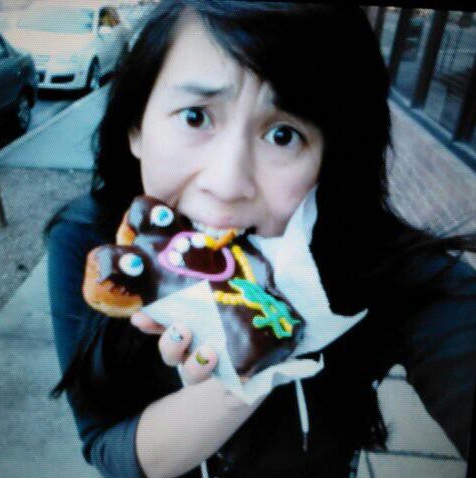Every morning, I wake up and ask myself, “Did I make a good decision?” The decisions range from whether I should have ignored my five morning alarms or more serious matters, such as, “Should I have eaten that taco before bed?” Self-reflection is a big part of how I arrived to where I am today. I question who I am, where I am, and whether I like any of that. Some call it doubt, I call it double-checking.
 Three and a half years ago, was it a good decision to drop college, leave home and start a new life in Seattle with only $14.12 in my bank account? Two years ago, was it a good decision to work two full-time jobs with a constant flow of side gigs just to save up for something in the future? One year ago, was it a good decision to trust my life savings (of two years) to a newly-founded startup that claimed that it would help me change my life by teaching me how to program? Did I know the right people who could help me rough up this company if it turned out to be a scam?
Three and a half years ago, was it a good decision to drop college, leave home and start a new life in Seattle with only $14.12 in my bank account? Two years ago, was it a good decision to work two full-time jobs with a constant flow of side gigs just to save up for something in the future? One year ago, was it a good decision to trust my life savings (of two years) to a newly-founded startup that claimed that it would help me change my life by teaching me how to program? Did I know the right people who could help me rough up this company if it turned out to be a scam?
Before I joined Code Fellows, I was a cashier, bookkeeper, office assistant, kitchen helper, and hair model. I didn’t have a college degree and was doing what I could to survive. I knew nothing about programming, except that it was what a lot of my friends did professionally and that I did not understand any of it.
During the last week of May 2013, something hit me: I was tired of feeling unaccomplished and hated that I lacked any substantial skills. So, in that one week, I watched a bunch of tutorials online about basic programming and eventually succeeded in creating an Octopress blog from scratch. I had to learn Ruby, the Octopress framework, terminal commands, Git, GitHub, and general web development in order to finish my blog. When I accomplished the task, I discovered that I was in an extreme love-hate relationship with programming. I figured that I’d give it more of a shot and applied to the Ruby on Rails Women-Only Bootcamp that Code Fellows held in July/August of 2013.
The application process took a month and it was grueling. After the initial application phase, I had to show Code Fellows my best code samples. I sent in the only code samples that I had—my Octopress blog. At that time, the application process included a video portion, where I was supposed to record a video of myself explaining something technical. The only guidelines for the video was that it was a “very open-ended question.” I really wanted to show off my personality and be true to myself so I made a video explaining how perform a technical move in Jiu-Jitsu called the double wrist lock. The next round consisted of finishing coding challenges. It was very challenging and I ended up learning a lot by just trying to finish the challenges over the course of a weekend. My hard work paid off and got me an interview, which eventually led to my acceptance into the program.
Joining the course (at the time it was called a bootcamp, but it’s the equivalent of the current Ruby on Rails Development Accelerator and learning how to program opened up my career options a significant amount. Nearing graduation from the bootcamp, many of my peers applied to work as web developers, while I decided that I wanted to explore the technology field more before settling down with a direct career path. I wanted to know what else I could do with programming other than make web apps. I realized that the skills I learned while learning Ruby on Rails could be applied to many other sides of technology, such as creating mobile apps, video games, and robotics. This newfound revelation of “there is no end to what you can do” led me to start my company: [DinoHulk].
[ ]
]
The idea behind DinoHulk is that no one should lose their curiosity and that education should be presented in a more awesome way. At DinoHulk, I create stories, mobile games, and teaching materials about things that I believe children should be aware of, such as solar power, bees, traveling, building websites, and more. While the topics span a wide range, I lean heavily towards creating content about technology because of how powerful it can be. I travel to many places to teach kids and adults how to code and tell them that I started my company because I learned how to code. Coding became my ultimate tool in sharing my creativity.

It is now officially a year after graduating from Code Fellows and I can say that I am grateful for my decision to join. Learning how to program reminds me that I love learning about new things and figuring out how they work. I thoroughly enjoy sharing this experience of learning by teaching people how to program and seeing them light up after they create their first web page. Coding led me to an amazing career of being curious and inspiring others be curious, too. And, of course, coding every step of the way.

